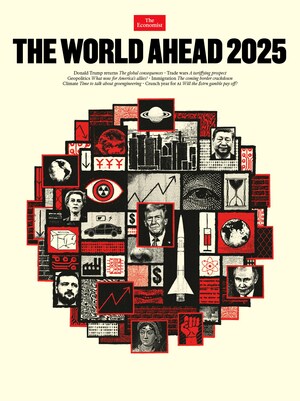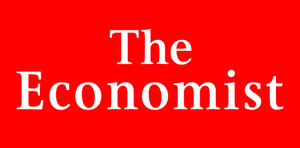"The Economist US presidential forecast" finds that Joe Biden currently has 83% chance of winning America's presidency
New Economist model predicts the 2020 election using machine learning to combine polling and fundamental factors
WASHINGTON, June 11 2020 /PRNewswire/ -- Today The Economist launched its first-ever statistical forecast of a US presidential election, calculating that Joe Biden currently has 83% chance of winning the presidency. https://economist.com/us2020model
The model, called "The Economist US presidential forecast", was created by The Economist's data team with help from Andrew Gelman and Merlin Heidemanns, political scientists at Columbia University. It estimates Joe Biden's and Donald Trump's probabilities of winning each individual state and the election overall. To produce these figures, it combines fundamental factors, such as economic conditions, presidential popularity and the amount of time one party has been in power, with polling data at both the national and state level. The model's projections will be updated daily until the election to reflect the latest available data.
The Economist's forecast, the first to be published in 2020 by a prominent news organisation, aims to avoid the flaws that caused models to misfire in the 2016 election. Rather than using equations that merely provide the best fit to data from the past, The Economist's model uses machine-learning techniques designed to maximise accuracy when predicting the future. Rather than having its projections whiplashed by short-term shifts in public opinion, the model emphasises the fundamentals and treats polls sceptically until the autumn, when the electorate fully tunes in to the race. And once the model does start to take polls seriously, it pays no heed to their official margins of error. Instead, it identifies and corrects for biases that can cause multiple pollsters to miss in the same direction, such as the volatile propensity of supporters of one party or another to answer surveys.
For both the popular vote and the electoral college, the model produces both a single "best guess"—which currently shows Mr Biden winning 53.5% of the popular vote (excluding third parties) and 329 electoral votes—and calculates the uncertainty surrounding these estimates. The model's website includes charts displaying these best guesses on every day since the beginning of March, and will continue to record its predictions every day until the election. It also includes a map displaying the model's estimated vote shares and win probabilities for each state.
Along with the launch of the US election forecast, The Economist is publishing an article summarising the model's methods and inclusions. It will appear in the June 12th edition of the paper and on Economist.com
G. Elliott Morris, data journalist at The Economist, said: "Among other innovations, The Economist US presidential forecast is the first of its kind to correct for partisan bias inherent in many presidential election polls. We are confident that it will be one of the most accurate forecasts available and will provide the US electorate with a true picture of the race."
The US election model follows the January launch of The Economist's "Checks and Balance" newsletter and podcast. Distributed each Friday, the newsletter highlights the best of our election coverage in The Economist's weekly edition and across its digital platforms. The 30-minute "Checks and Balance" podcast is hosted by three Economist journalists, who are joined by a cast of Economist correspondents from around the world. Each week they go beyond the horse race to dig into an important theme shaping American politics.
US editor for The Economist, John Prideaux, said, "The Economist aims to provide the most rigorous analysis and reporting on the 2020 US election. Our US presidential forecast takes this a step further by providing a projection grounded in meticulous statistical analysis and modelling."
The methodology for The Economist's US election model is open-source and available to anyone here: https://projects.economist.com/us-2020-forecast/president/how-this-works
About The Economist (www.economist.com)
With a growing global audience and a reputation for insightful analysis and perspective on every aspect of world events, The Economist is one of the most widely recognised and well-read current affairs publications in the world. In addition to the weekly print and digital editions and website, The Economist publishes Espresso, a daily news app, Global Business Review, a bilingual English-Chinese product and Economist VR, a virtual-reality app. Economist Radio produces The Intelligence, a daily current-affairs podcast and several other podcasts a week. Economist Films produces short- and long-form video. The Economist maintains robust social communities on Facebook, Twitter, LinkedIn, Medium and other social networks. A recipient of many editorial and marketing awards, The Economist was recently named the most trusted news source in the 2017 Trusting News Project Report.
SOURCE The Economist

Related Links
WANT YOUR COMPANY'S NEWS FEATURED ON PRNEWSWIRE.COM?
Newsrooms &
Influencers
Digital Media
Outlets
Journalists
Opted In






Share this article